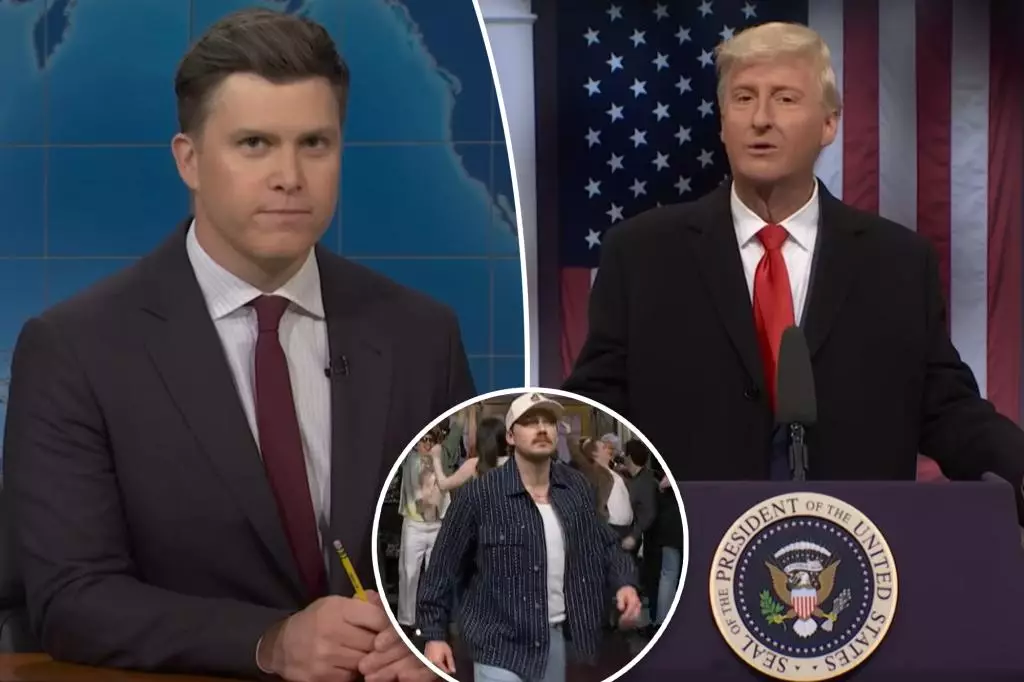The recent episode of “Saturday Night Live” delivered a unique blend of humor and social commentary, particularly regarding country singer Morgan Wallen’s abrupt exit from the show. This moment not only showcased the comedic prowess of SNL’s cast but also provided a glimpse into the juxtaposition of celebrity culture and live television.
A comedic skit, executed by James Austin Johnson in a parody of former President Donald Trump, illuminated the curious mix of absurdity and diplomacy that characterized Wallen’s departure. Johnson humorously mused about tariffs on uninhabited islands—a clever nod towards Wallen’s unexpected retreat just moments after he was welcomed to the show. The reference to making a quick escape to “God’s country” prompted laughter while simultaneously reflecting the perplexing nature of celebrity behavior in high-pressure environments.
The Symbolism of Wallen’s Departure
As Wallen took his leave from SNL, one can’t help but analyze the implications of his actions. The country singer, known for hits like “Whiskey Glasses,” had been invited to perform ahead of his new album release. The choice to exit immediately after his performance, avoiding the conventional mingling with cast members, spoke volumes about his comfort level on such a platform. It raised questions regarding the artist’s state of mind—was it mere awkwardness, or was there an underlying tension reflecting broader industry challenges?
The show’s commentators, including Colin Jost, seized this opportunity to blend populism with humor, equating the loss in the stock market to Wallen’s quick departure: “Money is leaving the stock market faster than Morgan Wallen at goodnight.” This line encapsulated the current economic climate while simultaneously framing Wallen’s actions as part of the spectacle, revealing how comedians use real events to reflect societal sentiments.
Innocence or Indifference? The Aftermath of Wallen’s Exit
Despite the laughter generated from SNL’s riff on Wallen’s behavior, deeper reflection invites scrutiny of the environment that breeds such interactions. Insiders indicated that Wallen’s departure was not marred by animosity but rather characterized as an “awkward moment.” Yet, the dynamics between celebrity and fan, creator and audience, are infinitely complex. Wallen’s reluctance to participate in sketches or engage with the cast points to an oasis of solitude in an ocean of public expectation.
While this incident might seem lighthearted on the surface, it exemplifies a microcosm of the broader disconnection between artists and their platforms. Artists like Wallen are thrust into the limelight, expected to juggle personal comfort with public persona. The tension is palpable, as audiences expect engagement while some artists retreat into themselves, preferring anonymity over notoriety.
Overall, Wallen’s exit has served as a catalyst for discussion about boundaries in performance art. While the laughter may continue to echo from SNL’s audience, the complexities behind the curtain remain a rich vein for exploration. The intersection of celebrity and audience expectations is a topic warranting honest dialogue, encouraging a shift towards broader understanding rather than mere entertainment.

